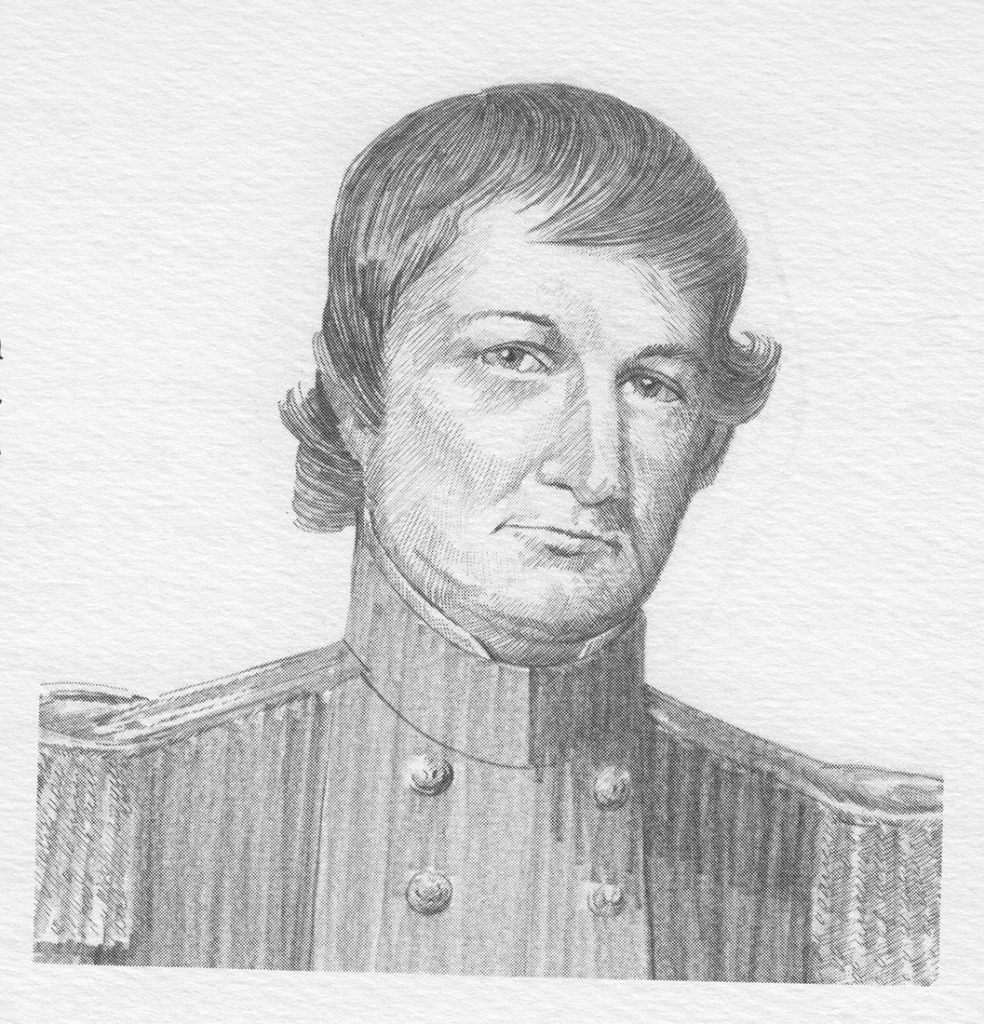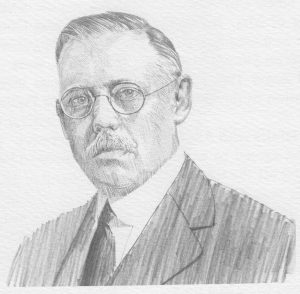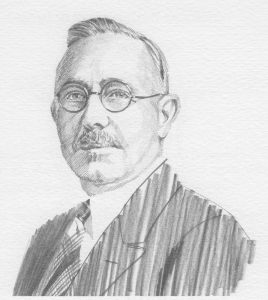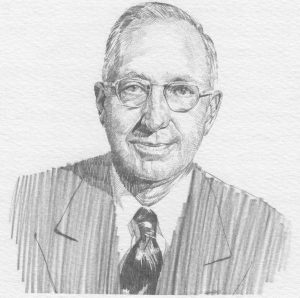General John Coffee epitomizes the type of dependable, public-spirited private citizen who contributed substantially to the development of the frontier regions of Tennessee and North Alabama in the early 19th century.
Throughout his life as a frontier merchant, a soldier, a promoter, and a planter – he seemed to display physical and mental qualities which made other men instinctively trust him and turn to him for advice and counsel.
Born on June 2, 1772, in Prince Edward County, Virginia, John Coffee was the son of Joshua and Elizabeth (Graves) Coffee. The family subsequently moved to Granville County, North Carolina, and to Rockingham County, North Carolina, where he grew to manhood. When his father died in 1797, John Coffee took steps to assure that his mother would be well provided for.
Noting the opportunities in agriculture, commerce, and land speculation in a newly opened region in Tennessee, he purchased land on the Cumberland River in Davidson County and in 1798 moved with his mother to this thriving frontier section near Nashville. Here the Coffees established direct contact with a group of families whose names are well known in the history of Tennessee and the United States – among them Andrew Jackson. John Coffee was to become closely associated with Andrew Jackson, not only as a neighbor, but also as a business associate, a relative by marriage, an officer serving under Jackson’s command, and a friend and confidante.
When the family farm no longer demanded his undivided attention, the young man sought new horizons as a frontier merchant. After several unsuccessful ventures in the mercantile business, caused primarily by the economic and political situation of the times, John Coffee turned to survey the unoccupied lands of middle Tennessee in order to recover his fortune and repay his debts. Ironically, the depressed market which brought financial loss in the mercantile business brought financial gain to John Coffee during the rest of his life. He was able as a surveyor, land agent, and speculator to profit from the ensuing westward movement.
Between 1807 and 1812, John Coffee, along with John Drake, became surveyors and locators for William P. Anderson and John Strother, one of the partnerships which sprang up after the passage of an act in 1806 which settled a long-standing dispute (North Carolina vs. Tennessee vs. U.S. Government) about ownership of land in Tennessee. Such partnerships and land companies sought warrants for unoccupied lands in order to sell the property. Coffee and Drake, as surveyors and locators, were to receive one-half of any cash and lands Anderson and Strother might receive. During this time, John Coffee also formed an in dependent partnership with John Drake. He was also called upon by many leading men of the state to give advice and to assist in their purchases.
In October 1809, the bond already existing between John Coffee and Andrew Jackson was strengthened when Coffee married Mary Donelson, niece of Mrs. Jackson. Mary received a plantation as a wedding gift, and there at Jefferson Springs on Stone’s River, Coffee built a home called Sugar Tree Forest and briefly turned his attention to developing the plantation.
In 1810, in order to settle affairs with Anderson, Strother, and Drake, he agreed to act as agent in surveying and laying off the townsite of Huntsville, Alabama.
He was also instrumental in persuading territorial officials to select Huntsville as the county seat of Madison County. After the completion of this work and the settlement of his affairs with Anderson, Strother, and Drake, he seemed to be in a position to devote his time to the plantation. But in 1812 came the call to military service to defend the frontier.
During the campaigns against the British and the Indians, John Coffee led a regiment of cavalry as part of Andrew Jackson’s force of Tennessee volunteers. His astute leadership and unerring courage soon brought him the rank of Brigadier General. His feats during the Battles at Horse Shoe Bend and New Orleans are a well-known part of history.
When General John Coffee returned from military service in 1815, he used the knowledge gained during the campaigns to extend his land interests into a new region. By 1817 he had been appointed surveyor-general of the newly created political unit called the Alabama Territory. His first task was to oversee the survey of the region North of the Tennessee River. When the work was completed, he established a land office at Huntsville, where the necessary plats and descriptions were prepared for use in the opening sale of land in the new territory.
In his capacity as surveyor general, he was able to profit, as was the custom of the times, from his or his clerk’s dispensing of information that enabled persons to buy land in the district.
He also participated in the organization and direction of stock companies in which problem region. One of the companies was the Cyprus Land Company which promoted the town of Florence. That his activities as a speculator were not construed by federal authorities as inconsistent with the duties as Surveyor of Public Lands is indicated by the fact that General Coffee was reappointed by each successive presidential administration from Monroe to Jackson.
By the end of 1817, John Coffee had decided to settle in Alabama. He bought a choice tract of 1,280 acres near Florence where he built a new home, which he named Hickory Hill. In 1819, he leased Sugar Tree Forest and moved his family to Alabama.
John Coffee shifted his major interests to the plantation and to his family and friends. The plantation became known as one of the most perfect plantations in North Alabama – fairly managed and expertly productive.
That John Coffee also found time to serve the interests of the Florence Community is evidenced by a resolution drawn up by city authorities after General John Coffee’s death on July 7, 1833, stating “a due sense of general moral worth, feeling a general lively gratitude for his public services and revering him for his upright work as a private citizen, (who gained) by his kindness and benevolence to the poor, and by his honesty and integrity the respect and confidence of every class of the Community.”
General John Coffee was given a military funeral, and as Andrew Jackson later said, “The vast concourse of people who attended … show how firmly he was fixed in the affections of his fellow citizens.”
(The information in this biographical summary was derived primarily from “The Life and Activities of General John Coffee,” the dissertation presented to the Graduate School of Vanderbilt University by Gordon T. Chappell in partial fulfillment of the requirement for the degree of Doctor of Philosophy in 1941.)




